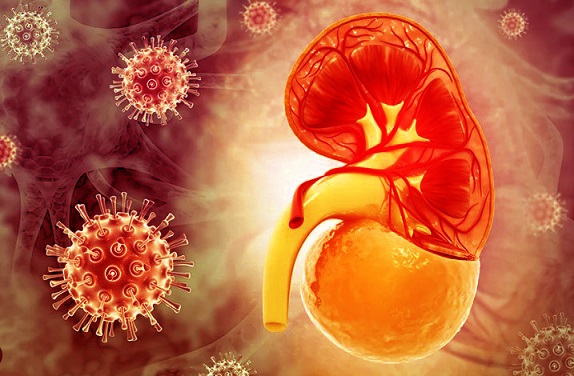Study Shockingly Finds That 75 Percent of Individuals Develop Reduced Glomerular Filtration Rate After COVID-19!
Nikhil Prasad Fact checked by:Thailand Medical News Team Sep 05, 2025 4 months, 2 weeks, 2 days, 16 hours, 38 minutes ago
Medical News: A Closer Look at the Findings
A team of scientists from Amsterdam UMC, Leiden University Medical Center, Spaarne Gasthuis, VieCuri Medical Center, Utrecht University, University Medical Center Utrecht, and University Medical Center Groningen has released troubling results about the long-term impact of COVID-19 on kidney health. They discovered that as many as 75% of those infected still suffer from reduced glomerular filtration rate (eGFR)—a measure of kidney function—up to 18 months after infection. This
Medical News report warns that the effects of COVID-19 extend far beyond the lungs.
 Study Shockingly Finds That 75 Percent of Individuals Develop Reduced Glomerular Filtration Rate After COVID-19
How the Research Was Done
Study Shockingly Finds That 75 Percent of Individuals Develop Reduced Glomerular Filtration Rate After COVID-19
How the Research Was Done
The Dutch researchers followed 95 post-COVID patients and compared them with 94 healthy individuals. Patients were examined during their infection, again at 3–6 months, and finally at 12–18 months. Kidney performance was assessed through eGFR, which reflects how well the kidneys filter waste from the blood.
The findings were striking. During the acute infection, nearly half of the patients showed impaired kidney function. Instead of improving, the numbers worsened over time. At 3–6 months, more than half still had reduced eGFR, and by 12–18 months, this number climbed to 70–75%. Meanwhile, only 40% of people in the control group showed reduced kidney function, and severe impairment was rare. Older patients, those who were hospitalized, and those with cardiovascular disease or high blood pressure were the most at risk.
Key Results That Raise Concern
-
During infection: 45% of patients had reduced kidney function, with 12% showing severe impairment.
-
At 3–6 months: 55% still had reduced eGFR.
-
At 12–18 months: 70–75% had ongoing impairment, with further decline compared to earlier stages.
-
Control group: Only 40% had reduced kidney function, and severe decline was almost unheard of.
The analysis confirmed that hospitalization, age, and underlying health problems made kidney decline more likely. Even after adjusting for lifestyle and health differences, COVID survivors were still significantly more likely to have reduced kidney function than healthy controls.
Why This Matters for Public Health
Reduced eGFR is an early sign of chronic kidney disease, which can progress silently for years before symptoms appear. It greatly increases the risk of dialysis, heart disease, and premature death. The study highlights the need for regular kidney testing in all COVID survivors, not only in those who were seriously ill. Many may not realize that their kidneys are still at risk long after the infection has passed.
gt;
Conclusion
The study confirms that COVID-19 can cause lasting harm to the kidneys, with reduced glomerular filtration rate affecting up to three-quarters of patients even 18 months later. This shows that the virus’s long-term effects are far more widespread than many believe. Routine kidney check-ups should become a standard part of post-COVID care, especially for older patients and those with pre-existing health issues. Ignoring this silent damage could lead to a surge in chronic kidney disease in the years ahead.
The study findings were published in the peer reviewed journal: Renal Failure.
https://www.tandfonline.com/doi/full/10.1080/0886022X.2025.2551737
For the latest COVID-19 News, keep on logging to Thailand
Medical News.
Read Also:
https://www.thailandmedical.news/news/covid-19-linked-crescentic-glomerulonephritis-with-hematuria-in-patients-without-respiratory-symptoms-raises-new-concerns
https://www.thailandmedical.news/news/study-shows-that-kidney-function-and-egfr-decreases-at-six-months-after-sars-cov-2-infection-for-long-covid-patients
https://www.thailandmedical.news/news/cd4-t-cells-and-the-il-6-amplifier-behind-covid-19-associated-glomerulonephritis
